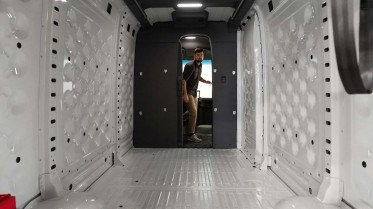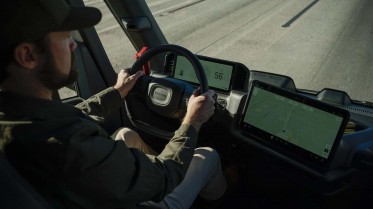Rivian ups production forecast and ends Amazon exclusivity for ECV
Rivian’s recent third-quarter financial report reveals a fascinating juxtaposition of soaring sales against a backdrop of substantial financial losses. This dichotomy paints a picture of a company at the cusp of significant growth, albeit grappling with the challenges inherent in the EV industry.
Rivian has boldly revised its production target for 2023, now aiming to manufacture a staggering 54,000 units of its R1T and R1S electric vehicles, up from its previous goal of 52,000. This adjustment comes in the wake of a remarkable 121% increase in vehicle production in the third quarter, compared to the same period last year, culminating in a record-setting 16,304 battery-powered vehicles. Deliveries too have seen an unprecedented boost, with 15,564 units finding their way to customers, marking a 136% year-over-year increase.

Financially, Rivian's landscape is a mix of promising improvements and ongoing challenges. Each vehicle sold in the last quarter represented a loss of approximately $30,500 for the company, a noticeable reduction from the $33,000 loss per car in the second quarter. This improvement reflects Rivian's efforts in streamlining production and reducing supplier costs. Despite these gains, the company still reported a net loss of $1.36 billion in the third quarter, albeit a 26% reduction from the same period last year.
One of Rivian's most intriguing moves is the termination of its exclusivity deal with Amazon for its Electric Commercial Van (ECV), previously known as the Electric Delivery Van (EDV). This strategic pivot opens the door to a broader market, allowing any company in need of a zero-emissions fleet to access Rivian's cutting-edge technology. The ECV, starting at $83,000, is available in two variants: the Delivery 500 and the Delivery 700. The former boasts a range of 161 miles and a payload capacity of 2,734 lb, while the latter offers 153 miles of range and a smaller payload of 2,513 lb despite being 30 inches longer and offering 165 ft³ more cargo space.
These vans, powered by Rivian’s Enduro electric motor, are distinct in their use of lithium iron phosphate (LFP) batteries, renowned for their durability and reliability even when charged from zero to full daily. Charging capabilities are robust, with a CCS1 inlet supporting up to 100 kW.
Despite the end of exclusivity with Amazon, Rivian remains committed to fulfilling its original order of 100,000 units by 2030. This commitment aligns with Rivian's broader vision of reducing CO2 emissions in the transportation sector, as articulated by CEO RJ Scaringe.









Facebook
Twitter
Instagram
RSS
Settings
Log in I forgot my password Sign up